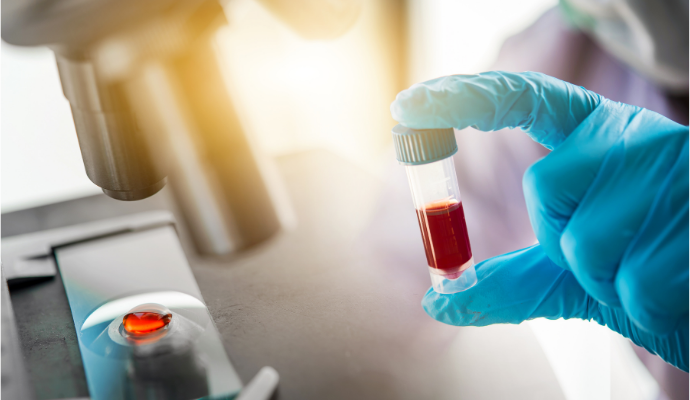GSK Antibody Helps Combat Respiratory Failure from COVID-19
A study found that 65.1% of patients 70 years of age and older were alive and free of COVID-19-induced respiratory failure 28 days after treatment with the antibody.

Source: Getty Images
- GSK recently announced results from a Phase 2 proof-of-concept trial evaluating its investigational monoclonal antibody treatment, otilimab.
The OSCAR study evaluated the efficacy and safety of a single-dose of otilimab 90 milligrams in addition to standard of care in 806 hospitalized adults aged 18 to 79 years of age with severe pulmonary disease related to COVID-19.
The primary endpoint of the study was the proportion of patients who were alive and free of respiratory failure 28 days after treatment.
Researchers found that 65.1 percent of patients 70 years of age and older were alive and free of respiratory failure 28 days after treatment with otilimab plus standard care, compared to 45.9 percent of patients who received standard care alone.
An additional mortality analysis up to Day 60 saw a treatment difference of 14.4 percent, favoring otilimab. Rates were 40.4 percent for standard care alone versus 26 percent for otilimab plus standard care.
Data from all patients showed a difference of 5.3 percent, but this did not reach statistical significance, the study found.
The results suggest a potentially important clinical benefit in a pre-defined sub-group of high-risk patients and potentially the public, a GSK spokesperson said. Therefore, the company decided to expand the study cohort to confirm the promising findings.
“Patients aged 70 and over account for 70% of COVID-related deaths and nearly 40% of hospitalisations. Our scientific understanding of COVID continues to evolve at a rapid pace with recent studies suggesting that GM-CSF is elevated in this group of patients,” Christopher Corsico, senior vice president of development at GSK, said in the announcement.
“Given the profound impact this pandemic is having on the elderly and the encouraging data we are sharing today, we are hopeful this finding will be replicated in the additional cohort,” Corsico continued.
Nearly 10 to 15 percent of patients diagnosed with COVID-19 experience severe disease involving respiratory problems that can require hospitalization and intensive care. And an additional five percent of patients become critically ill.
Age is a significant risk factor for severe COVID-19 disease.
For example, GSK noted that the risk of hospitalization is five times greater for patients age 70 to 74 and rising to eight times higher for patients aged 75 and older.
In this age group, there is also often a crucial need for breathing interventions, including significant oxygen support or mechanical ventilation.
Although the current available COVID-19 therapies have limited clinical benefit in more severe stages of the coronavirus for patients who require these interventions, research suggests that cytokine GM-CSF in the immune response to COVID-19 may be more prominent in patients over 70 years of age.
Cytokine is a common side effect of COVID-19 where the body starts to attack its own cells and tissues rather than fighting off the virus. Currently, cytokine is one of the leading causes of COVID-19 death.
But there is a severe unmet need for additional therapeutics to help mediate the immune response in this patient population. Therefore, the additional cohort in the GSK study will follow a similar study design and will enroll nearly 350 patients aged 70 years and older.
Clinical-stage biopharmaceutical company Humanigen is also currently focusing on its monoclonal antibody, lenzilumab, to treat cytokine.
At the end of November, the company announced that the first patient was dosed in the ACTIV-5 clinical trial evaluating lenzilumab with remdesivir in patients hospitalized with COVID-19.
And most recently, the trial uncovered that lenzilumab had a clinically meaningful impact on patient recovery, with an estimated 37 percent more recoveries observed in patients who received lenzilumab versus the current standard of care.
Notably, no serious adverse events have been linked to lenzilumab.
